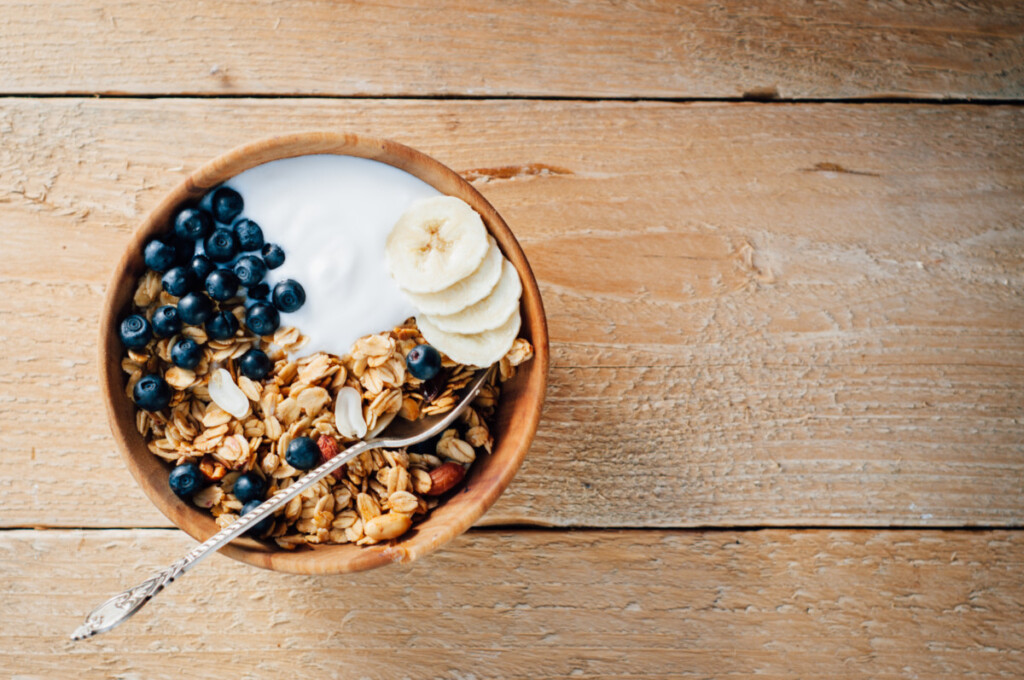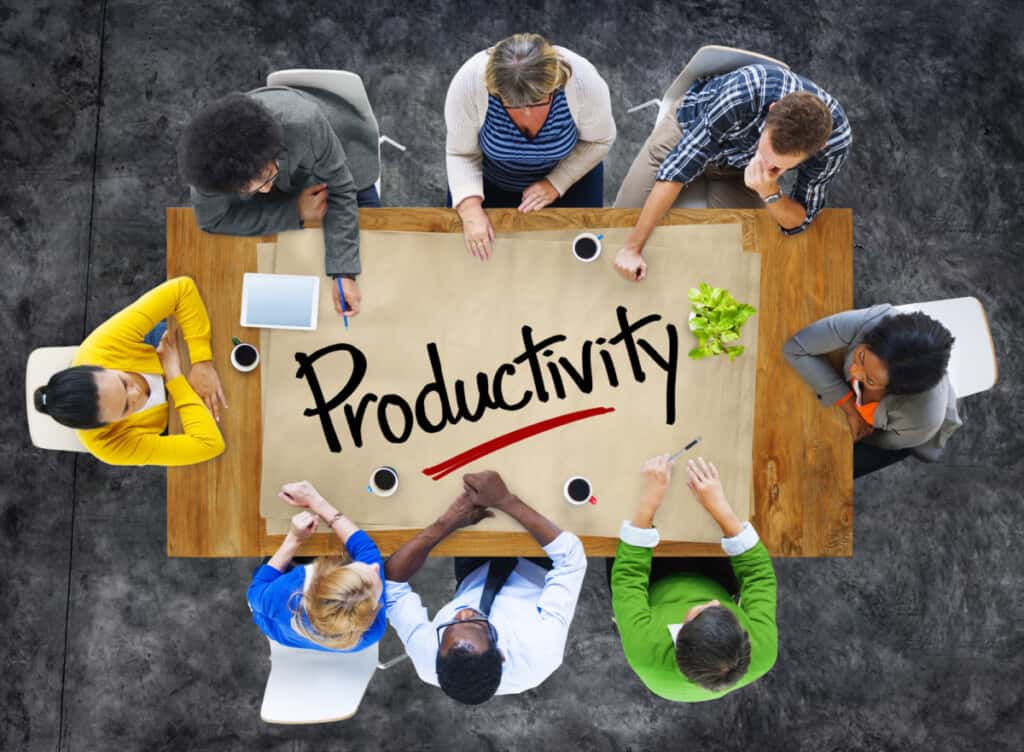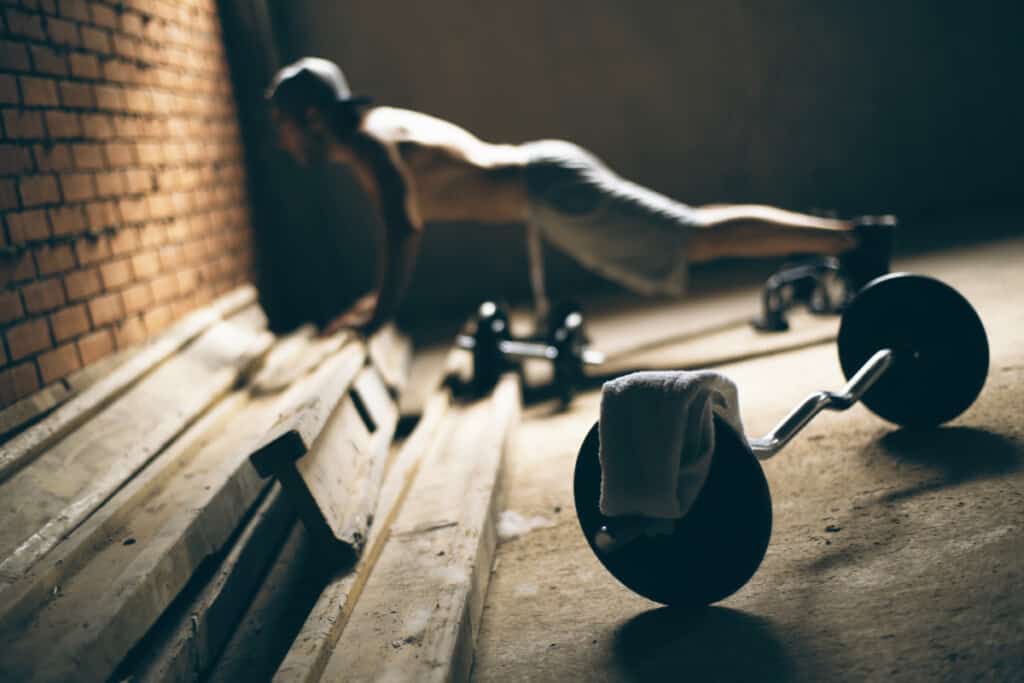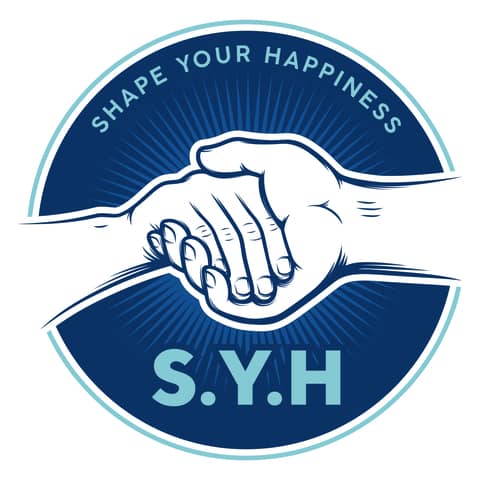Who doesn’t love to sleep? Me, me, me! True, sleep is an amazing thing but so is waking up early. in fact, most of us do get up early, say at 6:00 a.m. or 7:00 a.m. or whenever we have to go to work, but what if I tell you that rising earlier than that should be your goal (even if you don’t have to get to work)?
You may ask, how can you become an early riser? You must go to sleep early and on time, have a compelling reason to get up early, put your alarm clock away from the bed, and wash your face with water immediately after getting up so the temptation to go back to bed subsides. These are some simple, yet foolproof, tricks and habits that I did to become an early riser.
If you aren’t naturally an early riser, then you probably fall into the other category – the night owls – people who prefer to stay up late or pull all-nighters. Check out the differences between the two and decide for yourself which category you would like to fit in.
| Preferences | Early Risers | Night Owls |
| Decision-Making | Good | Poor |
| Mood | Wake up with a smile | Wake up with a frown |
| Preferred Media | News, books, and sports | Online shows, games, and movies |
| Eating Habits | Prefer Breakfast | Prefer Dinner |
| Risk of Sleeping Disorders | Lower | Higher |
| Alertness and Productivity | Higher | Lower |
Did you know some of the greatest minds and leaders of the world are/were early risers? People who had it all, who succeeded at everything they put their mind to, and changed the world? Before we get to the gist of the article, how about we take some inspiration from them?
Early Risers You Should Be Inspired by
- Benjamin Franklin used to get up every day at 5:00 a.m. and utilize the time to wash, bathe, dress, and schedule his plans for the day.
- Richard Branson, the man who founded the Virgin Group, gets up early to exercise and enjoy a nutritious breakfast before heading to work.
- Ernest Hemmingway chose mornings to work on his writing as he believed it was the most peaceful time of the day, free of worldly interruptions.
- Thomas Jefferson never woke up after the sun did. He would record the temperature and air pressure, light up a fire in his study, sit on a comfortable chair with his feet dipped in cold water, and meditate or work on his political theories or scientific hypotheses.
- Bob Iger, CEO of Disney, is also an early riser. He starts his day earlier than most and uses that time to multitask. He likes to listen to music, catch up on a few emails, read the paper, watch TV, and have breakfast before starting his day.
- Tim Cook, CEO of Apple, likes to get up early to reply to emails to global managers. He then heads off for a sweating session and sips on some good coffee before heading to work.
- Indra Nooyi, CEO of PepsiCo, rises at 4:00 a.m. every day and is at the office by 7:00 a.m. to start her day. She spends the early hours of the morning with her family so that they don’t feel neglected.
- Michelle Obama also promotes the habit of rising early. She enjoys a daily workout session before waking up her daughters and getting busy with preparation for their school.
- Last, we have Ursula Burns, CEO of Xerox, who gets up early to reply to important emails in a calm environment. She also uses that time of the day to plan and schedule her day ahead.
The Benefits of Rising Early
There are a number of benefits to getting up early. You are least distracted, there are no phone calls or incoming emails you have to tend to right away, you can enjoy your breakfast in a calm and quiet environment, and start with the most important task of the day by being focused. The calmness of the surroundings with no sounds of traffic is something we all crave deep inside. It’s sort of like a blissful moment before all hell breaks loose and everyone gets up and the cars start honking.
Let’s take a look at some researched and proven benefits of becoming an early riser below.
Improved Grades

According to a US study on students and their academic performance, those who rose early scored higher in exams and also had an overall better GPA than those who didn’t. The findings proposed that students who got up early started their day earlier, had more time to manage their day’s plans, and were more likely to go to sleep early – thus, avoiding staying up late.
They had a consistent sleeping routine that helped them get timely sleep every night. They created routine sleeping and waking habits, which allowed their system to maintain a steady circadian rhythm. Think of it as our body’s internal clock that gives us cues to do things at a certain time of the day. This rhythmic pattern plays a crucial role in our sleeping times as well as brain function and overall health.
You Have Time to Eat

Whether you admit it or not, many studies suggest that breakfast is the most important meal of the day. It basically jumpstarts your day by providing you with all the strength and energy you need throughout the day. Your system needs food after fasting for a good 6 to 7 hours (the time between dinner and breakfast when you sleep). An ideal breakfast should get you until lunchtime. Omitting it can lead to poor cognitive function.
According to one study, children were given four different types of breakfasts on 4 consecutive days. They were to eat 2 different types of cereals for the first two days, a glucose drink on the third, and eat nothing on the fourth day. The results concluded that on days where the children had a glucose drink and no breakfast, their attention and memory declined. They also had trouble focusing throughout the day. This proves that skipping breakfast has a negative impact on the functioning of our bodies and, as a result, leads to poor productivity and focus.
In another interesting study published in the International Journal for Vitamin and Nutrition Research, having breakfast also promotes better food choices among kids. During the study, it was found that obese children often skipped breakfast and consumed fewer nutrients, carbs, and vitamins throughout the day. In comparison, kids who ate breakfast, despite consuming more calories, but were still less likely to be obese or overweight.
You Experience Calmness

This is an often-overlooked benefit of rising early, but believe me, this is my personal favorite. You have all the time in the world just to yourself in the morning. This is the time when you can literally do nothing and still feel on top of the world. You can just sit by the window and see the sun come up and enjoy the picturesque hues.
You can think, meditate, and relax without having a single thing to worry about. You can even enjoy a hot bath, water the plants, or read a book – do something you otherwise don’t normally have time for! No one will be there to disturb you or ruin your mood.
Optimistic Outlook

Getting adequate hours of sleep every night has been linked with a more positive and upbeat vibe. Early risers are happier in general as their mind is fully refreshed. Their body also feels less fatigued than those who don’t get enough hours of sleep every night, which results in laziness, procrastination, and sluggishness throughout the day.
Early risers also depict a happier and calmer attitude, resulting in a positive outlook over things. They don’t get annoyed as often as those who are sleep deprived and minor setbacks don’t anger them instantly.
You Develop Good Habits

In a study, American researchers tried to identify the link between Morningness and Eveningness substance use. The substances under question were cigarettes, alcohol, and marijuana. Some 262 adolescent participants’ reproductive and bone density were recorded. Throughout the years, participants that hit puberty early or on time, but were night owls, were likely to indulge in substance abuse.
This means that those who slept late or rose late were likelier to develop habits of drinking or smoking. The nightlife was considered a culprit in the development of such habits as the majority of the parties had drinks and alcohol on a regular basis.
These habits can cause further damage to not just your health but also your mental capacity and focus. When you develop a negative habit, you move away from the good ones such as getting to sleep on time, eating nutrient-rich foods, or doing things at their set time.
Although it may seem a far-stretched idea, research does project its possibility, which is why it is best that you set a time for sleeping on time every night and getting up early. That way, you prevent yourself from substance abuse and other negative habits.
You Procrastinate Less

Morning people, when compared with night owls, are more productive and ready for work. They have ample amount of time to plan their day accordingly, have breakfast, and get to work on time unlike those who get up late, then drag themselves to work without breakfast and zero energy levels.
During a question and answer session with researchers from DePaul University, researchers claimed that the majority of procrastinators preferred working at night as they find that time of the day as most productive. Although this might just be behavioral procrastination, those who choose night time as their preferred hour of working showed declined productivity levels and distracted concentration. They also showed visible signs of aging even when middle-aged because they pulled (too many) all-nighters and, thus, their health suffered as a response.
In another study on adolescents, teenagers who studied the night before exam did poorly academically than those who were early risers and preferred to study in the early hours of the morning. They reported increased alertness and presence of mind during exams.
Your Personality Improves

Continuing from the previous point, you can also sense an improvement in your overall personality when you become an early riser. I remember the time I used to sleep late when I was in college and the first two periods the next day was the hardest to sit through. Not only that, I felt I was overly rude to everyone and less approachable. Every day, I would wish that the class got canceled and, when it didn’t, I would take this annoying personality into the class, hoping for it to end soon.
This form of behavior is common in late sleepers. In fact, there are studies to prove that. In one study, Christoph Randler, a German researcher called 346 German students to participate in a study. He used a Temperament Character Inventory (TCI) device to monitor the mood swings and temperament of those students. The morning-oriented students showed greater persistence and cooperation as compared to the evening-oriented students. That proved that their overall temperament was more approachable and socially-likable than later sleepers.
Your Problem-Solving Skills Improve

Problem-solving skills are a great asset. It is a trait that is taught from an early age. Some kids are genetically talented at it while others just learn it along the way. It doesn’t matter how good or bad you are at it, the fact that you have the ability to handle crisis and difficult situations without losing your calm is great quality.
According to Christoph’s findings, morning-oriented kids were likelier to anticipate problems rather than giving up their arms. They were also keen on trying to figure out a solution. Moreover, Christoph also proposed that this skill wasn’t dependent on how many hours the kids slept or when but rather when they woke up. This means that waking up at the right time is more crucial than sleeping late.
The best way to counter sleeping late is to push your sleep cycle backward and try to go to sleep earlier. Every human being on average enjoys 6 to 7 hours of sleep every night and feels reinvigorated after that. So, how about readjusting your night schedule to sleep early so that you can wake up early?
You Have Time to Exercise

This is another great benefit of becoming an early riser. Exercise isn’t only for those trying to lose weight. It is for everyone who wishes to maintain a healthy weight and keep their bone density and flexibility of muscles in check.
Like any other work, exercise too requires commitment and focus. What better time than an early morning sweat session to focus better? Need a more convincing reason than that? How about I tell you that according to one research study at Northumbria University, you can burn more fat on an empty stomach with regular exercise? Researchers asked 12 males to run on a treadmill. Some of them were asked to have breakfast before while others were told to withhold eating anything prior.
The participants that exercised on an empty stomach burned 20% more fat than those who have had breakfast. Moreover, even after exercise, they experienced no increase in their appetite. They ate as they would without seeking more calories.
But what does it have to do with early mornings?
Most of us schedule gym sessions right after work before going home. It just seems more convenient, but did you know that by the time you hit the gym, your brain is saturated from the day’s work and too tired to focus? It is true. Our productivity levels decline as the day goes by.
Some days we feel so tired mentally that we decide to skip the gym altogether or something (more) important comes up and you have to cancel it. However, if you schedule exercising early in the morning, there are fewer chances of skipping it as there is less worry on your mind. Not to mention, you are your most productive and focused too. Thus, early morning is best for exercising!
Easier Commutes

Of course, when you start your day earlier than most, you get to work with less traffic on roads. Who doesn’t love that? Even a 5 minutes difference in leaving from home late can make such a huge difference.
If you tend to get up late like most, you are likelier to be stuck in traffic like most. And there is nothing worse than starting your day regretting that you had left earlier and avoided this congestion on the roads. After all, there is no point stressing about it when you are stuck in traffic and losing patience with other drivers on the road.
Anyone who has been stuck in bad traffic knows how much of a blessing it can be to have a clear road to drive on. Moreover, if you take the subway or bus to your commute, you will notice a lesser crowd and hopefully find a peaceful spot to sit down and enjoy the ride, unless you like it crammed with every other person on the phone talking aloud.
How to Become an Early Riser?
Now that you have read about the countless benefits, it only makes sense that you adopt this habit of rising early. Ideally, any new habit takes up to 28 days for it to become a part of you. This means that in order to become an early riser, you have to wake up early for at least 28 days consecutively so that the new habit is established. Sounds tough, right?
Well, not quite as tough as you think because I have in store for you some amazing and fail-safe techniques to become an early riser, like giving yourself a compelling reason to get up early, sleeping at a set time, putting the alarm clock away from the bed, planning your day the night before, etc.
Let’s discuss these in detail so that you can go through the step-by-step procedure to follow these to become an early riser.
Create an Evening Routine
The quality and quantity of sleep you receive the night before will determine whether you will wake up feeling refreshed or fatigued. By now, you must know that if you sleep late, there are few chances that you will wake up feeling refreshed and ready to take on the world. Therefore, a restful evening is a must to ensure that you feel rejuvenated the following day. Below are some tips to create an evening routine that promotes a good night’s rest as well as a reinvigorated morning:
- Start to wind down after a specific time every night.
- Put away your electronics at least an hour before going to bed.
- Don’t have a hearty or protein-enriched meal before bed. Eat at least 3 hours before bedtime.
- Drink some warm milk or herbal tea with lavender or chamomile. These two herbs promote sleep.
- Listen to some white noise or soothing tunes when in bed.
Mel Robbins goes over her evening routine in this short video which I think you will enjoy! She ensures structure in her evening routine which I think is super important to ensure organization and productivity for the next day. She is the author of
It is quite harsh that you force yourself to wake up every
morning at 6:00 a.m. You must understand that the process of becoming an early
riser doesn’t happen overnight. Instead, it is a gradual process that takes
time and shouldn’t feel forced. If you have the habit of waking up at 9:00
a.m., don’t set the alarm for 6:00 a.m. right away. Rather, set it for 8:45,
then 8:30, and then 8:15 a.m. The idea is to make small increments with time so that you
don’t lose the motivation to get up early. The small transitions won’t feel too
burdened and you will become an early riser over time. If you are looking for a motivation booster, look no further
than a reward set for every time you wake up early. Rewards serve as positive
reinforcements and keep one driven towards the goal. It is very similar to
having a compelling reason to get out of bed every day but only more fruitful. Set small rewards for yourself such as eating your favorite
breakfast or treating yourself with some comfort food during lunch or having a
day off from some regular chores you do every day so that you remain tempted to
repeat the same again. “Maybe if I sleep 15 more minutes and go without stopping by
the coffee place or giving my hair a blow-dry, it won’t be that big a thing.”
We often give our mind reasons to sleep some more. We need to stop that.
Rationalizing should be avoided when trying to become an early riser. If you
keep giving your brain options to sleep some more, you will never be able to
get out of bed until the very last minute. And what will happen next? You will
just be running from one room to another, skipping breakfast, getting stuck in
rush hour traffic, and be late for work. Simple, yet effective. Most of us no longer use alarm clocks
by the bed. We have the app on our phones and have them placed on the
nightstand instead of clocks. Before I tell you this next tip, let me just tell
you that keeping your phone so close to your brain is dangerous. Every time
your phone beeps, vibrates, or lights up, it emits horrible electric and
magnetic fields (EMFs) waves that are harmful to the brain. The tip is to keep your alarm away from the bed, at a
distance that will require you to get out of bed in order to shut it when it
goes off. When we have it so close to our ears and it goes off, our reflexes
instinctively hit the snooze button and we go back to sleep the way we were.
Most of the times we don’t even remember doing that in sleep because we are so
clueless about our actions. However, if you put it at a safe distance from the bed, not
only will you save yourself from some harmful EMF waves, you also will be
forced to get out of bed to quiet it. Chances are, once you are up on your feet
and out of bed, you will stay up! We think that an additional 5 minutes to sleep makes
sleeping blissful but it isn’t the case. Going back to sleep for another 5
minutes before the alarm buzzes again puts you into a deeper sleep cycle. This
makes it harder to get up the next time around. This is one reason that you
often feel that those extra 5 minutes just flew by. Fight the temptation to fall asleep after your alarm goes
off and try your best to get out of bed instantly. Get up to wash your face,
head to the kitchen to get the coffee maker started, or meditate while sitting
on the ground. It will take a few minutes for your mind to register it is
daytime and be fully awake. Daylights regulates the circadian rhythm. It also improves
sleep. If you sleep in a room with windows that allow sunlight to seep into the
room, open the blinds as soon as you get up. A well-lit room tells the brain it
is time to get up and, thus, makes going back to sleep a rarity. Besides, you are already out of bed, instead of going back
into bed, soak up as much light as you can. Brew some fresh coffee and have it
on your porch or balcony or opt for a quick jog right after waking up. The more
daylight you absorb, the better your health and mood. You will also notice an
improvement in your energy levels throughout the day if you practice this
daily. Block any source of light when going to sleep, even the
little blue light on your phone and red light on your TV. The presence of light
can disrupt the body’s natural secretion of melatonin, which regulates sleep.
The same goes for blocking all noises such as those coming from outside or from
other rooms of your house when trying to sleep. Adjust your bedroom’s temperature, so that you don’t have to
wake up in the middle of the night to readjust it. Soundproof your room if you
live in a noisy area. The sooner your body goes to sleep and gets its
appropriate hours of sleep, the more willing and ready it will feel the next
morning (and make it easier for you to get up early). Having a compelling reason is one of the most promising
strategies when trying to become an early riser. If you don’t have one, you
probably won’t develop the habit of getting up early. Give your brain a reason
so strong that it wakes you up even before your alarm goes off. The reason has to be sensible and enjoyable, as if it isn’t
both, you will feel less motivated to continue. Sign yourself up for an early
morning class, or enjoy breakfast at your favorite café without having to wait
in a line and then eating in the car, or use that time to do something you love
such as painting, gardening, writing, or singing. Ever wondered, why, despite trying your best, you still
can’t seem to become an early riser? Here are some of the most common reasons
this happens: Let’s discuss these in detail a little below. How many times has this happened that you literally had to
convince yourself to stop watching another episode and go to sleep because you
have a busy day at work tomorrow? Ah, the struggles of everyone with a Netflix
or Disney+ subscription. Watching TV until late can also hamper with the amount of
sleep you get. When you are made to get up the next morning, you feel groggier,
fatigued, and unable to process things attentively. This leads to poor
performance the following day and therefore, makes it a stressful one. There is only one way to counter this. Hard, but doable!
Establish a time for watching TV every night. Stick to it religiously and get
up when the clock hit the mark. Don’t give in to the temptation of watching
another episode because the last one ended on a cliff-hanger. The show isn’t
going anywhere and you can always watch it the next day. Better yet, tell
yourself to wake up early the next morning and continue from where you left off
before heading to work. Do you have a habit of running straight to the coffee
machine every time you have the last sip of your coffee? True, coffee is an
amazing stimulant; so is tea. But when consumed in excess, it can disrupt your
sleep cycle. According to one study conducted at Michigan’s Henry Ford
Hospital’s Sleep Disorders & Research Centre, drinking coffee after a
particular time of the day can disturb your sleeping pattern. That time of the day is 2:00 p.m. Researchers suggest that one should restrict the consumption
of caffeine after 2:00 p.m. because it can reduce the quality and quantity of
sleep one gets every night. For those who don’t know, the quality of sleep you
get every night is equally important as the quantity. During the study,
researchers found that participants who consumed caffeine six hours before
going to bed reduced their sleeping time by one hour and also suffered from declined
sleep quality. They were likelier to get up in the middle of the night due to
external noises or lights in their surroundings. Therefore, in order to avoid this, limit your consumption of
caffeine after noon. Resort to other foods or snacks to rejuvenate and achieve
focus. How many of us take our phones, tablets, or laptops in bed
with us? Not turning off your devices before getting into bed is also another
reason why we fail to fall asleep until late and mostly fail to get up early.
It is recommended that all devices must be switched off or set aside an hour
before you decide to hit the bed. The presence of light, especially
the blue one that our screens emit, prevents the production of melatonin – a
chemical that promotes sleep. When your brain doesn’t receive the signal, it
assumes it is still daytime and, thus, makes sleeping difficult. If putting them aside isn’t an option for you, you can
always dim their brightness and place them at a distance of at least 12 inches
from your face. This will trick the mind and sleep will come naturally. Willpower can make you do great things but not if you lack
intrinsic motivation. Willpower can push you forward towards your goals but
whether you achieve them or not is dependent on how motivated or demotivated
you are. A lack of intrinsic motivation prevents you from becoming an early
riser. How can you increase your motivation? By having something to
look forward to. Having a plan ahead of time for the next day can help you get
up early. Although, the reason has to be exciting enough. Don’t you get up
early when you have a trip planned for the next day? Hell, sometimes the
excitement makes it hard to fall asleep too. Find something that motivates to get you out of bed every
day. It could be a delicious breakfast, watching your favorite show on TV
before going to work, or enjoying your favorite hobby. Finally, if you have more than one alarm set for the next
day and rely on hitting the snooze button too often, you are going to fall
victim to oversleeping. Hitting snooze restarts your sleep cycle,
which makes it even harder than before to get up. Why? Because when the sleep
cycle restarts, it takes you into a lighter but deeper part of the sleep cycle
that is harder to break off. Therefore, avoid doing so. The repeated action will only
cause delays and make you late for work. Feeling inspired to become an early riser? Check out this amazing video by the Art of Manliness to get started!Do 15-30-Minutes Increments
Make Waking up Early Rewarding
Don’t Rationalize
Put Your Alarm Away
Fight the “5 More Minutes” Impulse
Enjoy the Sun
Manipulate the Surroundings to Your Benefit
Have a Compelling Reason to Wake Up
Why Can’t You Wake Up Early?
Watching TV Late at Night
You Have Caffeine After Noon
You Don’t Turn off Your Electronic Devices
Until Late
You Rely Solely on Willpower to Get out of Bed
You Keep Hitting Snooze
